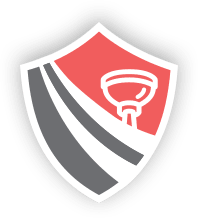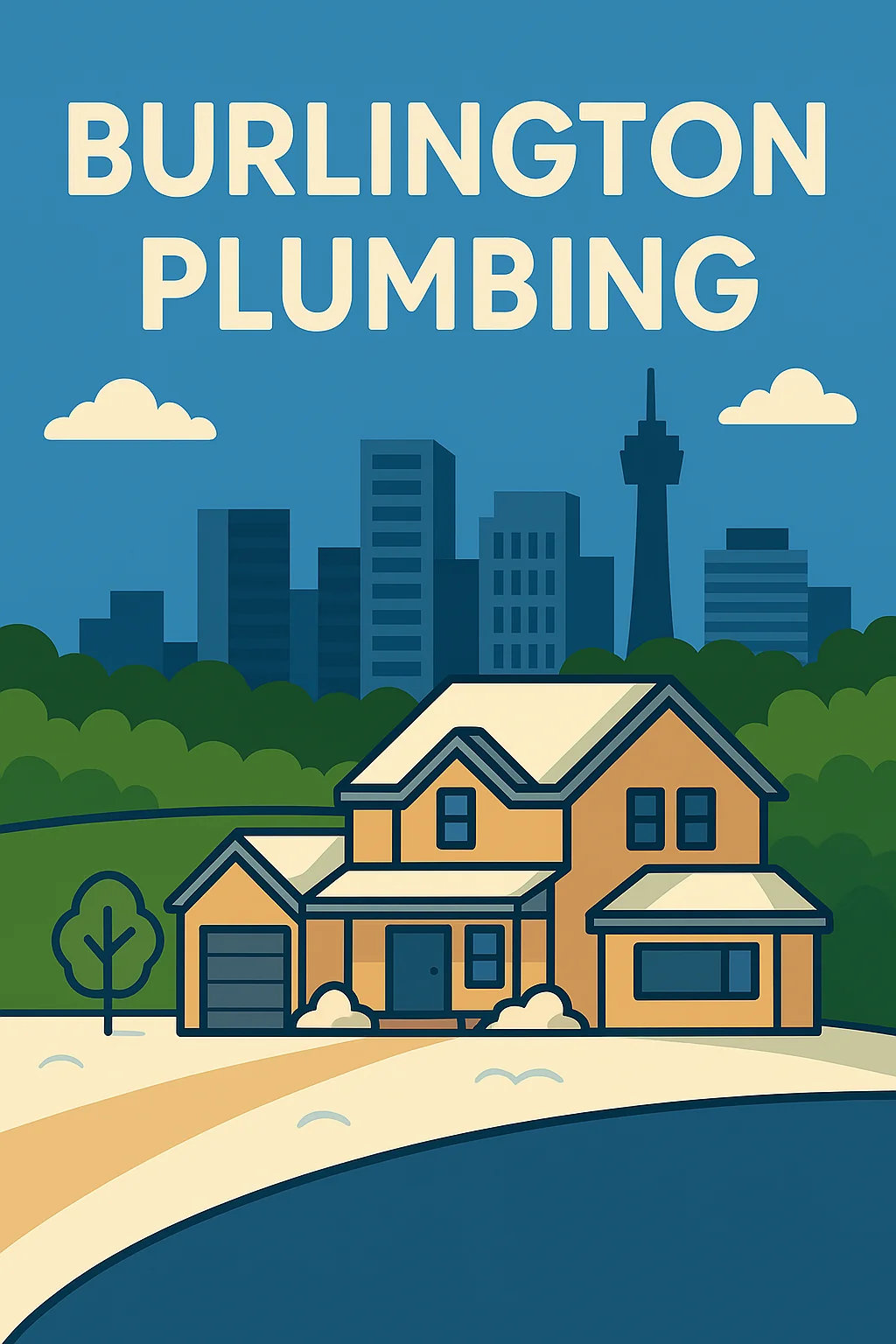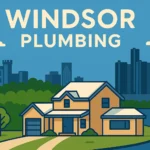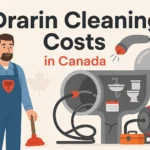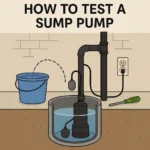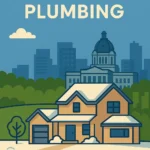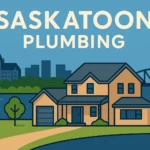Introduction
Burlington, located on the shores of Lake Ontario with more than 186,000 residents, combines historic neighbourhoods near the waterfront with rapidly growing suburban areas in the north. Plumbing needs vary across these communities, from older homes with aging infrastructure to modern builds with efficient systems. Burlington’s hard water contributes to scale buildup in fixtures and appliances, while seasonal freeze risks and occasional basement flooding make regular plumbing maintenance a priority.
Water Source, Quality & Hardness
- Source: Burlington’s drinking water comes from Lake Ontario, treated at the Burlington Water Purification Plant operated by Halton Region (Halton Region – Drinking Water).
- Quality: Halton Region’s annual water reports confirm Burlington’s water consistently meets Ontario’s Safe Drinking Water Act standards (Halton Water Report).
- Hardness: Burlington water is hard, averaging 8.6 gpg (~147 mg/L CaCO₃) (Aquatell).
What this means for homeowners:
- Scale buildup on faucets, kettles, and dishwashers.
- Sediment accumulation in hot water tanks, lowering efficiency.
- Many residents install water softeners to extend appliance lifespan.
Housing Stock & Plumbing Systems
- Older waterfront homes (Central/South Burlington): Often feature copper supply lines or remaining galvanized steel; sewer laterals may be clay or cast iron.
- 1960s–1980s subdivisions (Brant Hills, Mountainside): Mix of copper and ABS piping; some homes have sump pumps.
- 1990s–2000s developments (Headon Forest, Millcroft): Predominantly copper and early PEX systems with backflow protection.
- Newer subdivisions (Alton Village, north Burlington): Modern PEX and copper systems, efficient fixtures, and foundation drainage.
Common Plumbing Issues in Burlington
- Hard water scaling on fixtures, showerheads, and hot water tanks.
- Drain clogs in kitchens and bathrooms, especially in older homes.
- Sewer backups during heavy rainstorms in areas with aging clay laterals.
- Frozen pipes in winter where insulation is lacking.
- Sump pump failures leading to basement flooding in spring and summer storms.
Seasonal Considerations
- Winter: Frozen or burst pipes in uninsulated areas.
- Spring: Snowmelt and Lake Ontario storms can overwhelm drainage and sump systems.
- Summer: Heavy thunderstorms may cause backups in older neighbourhoods.
- Fall: Increased rainfall raises flooding and sewer backup risks.
Plumbing Costs in Burlington
Most plumbers in Burlington charge a minimum service call of about $300 before tax, which covers the first hour or inspection.
Typical Plumbing Prices in Burlington
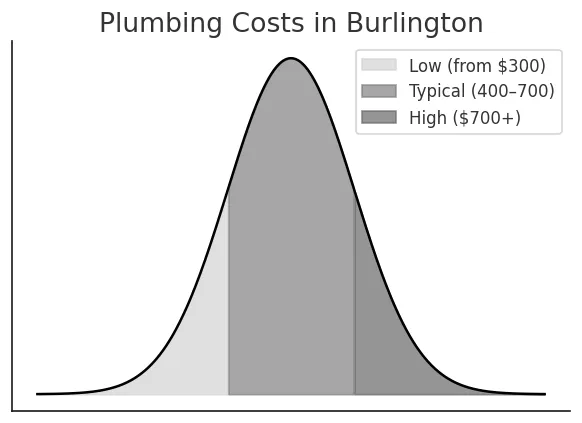
| Service | Low | Typical | High |
|---|---|---|---|
| Drain unclogging | $300 | $400 | $700+ |
| Faucet replacement | $300 | $450 | $850+ |
| Hot water tank replacement | $1,400 | $2,000 | $3,500+ |
| Emergency after-hours call | $450 | $700 | $1,200+ |
⚠️ Disclaimer: Prices are estimates only. Actual costs vary depending on contractor, permits, job complexity, and materials.
Local Permits & Regulations
Plumbing work in Burlington must comply with the Ontario Building Code.
- City of Burlington – Building Permits: Building Permits Department
- Phone: 905-335-7731
- Email: buildingpermits@burlington.ca
- Permit Process: Some projects require zoning or grading clearance before permits are issued (Permit Process Flow).
- Regional Permits (Halton Region): For work affecting regional water or sewer systems, visit Halton Region Permits.
Minor like-for-like repairs (such as replacing a faucet in the same spot) generally do not require a permit.
Case Study: Water Heater & Softener Upgrade
In 2024, a Burlington homeowner in a 1970s subdivision noticed declining hot water supply and heavy scale buildup. Their 14-year-old tank water heater was replaced with a new high-efficiency model, and a water softener was installed to protect appliances.
- Cost: Approximately $2,800 (installation, disposal of old unit, new softener).
- Result: Better hot water reliability, reduced scale buildup, and longer appliance lifespan.
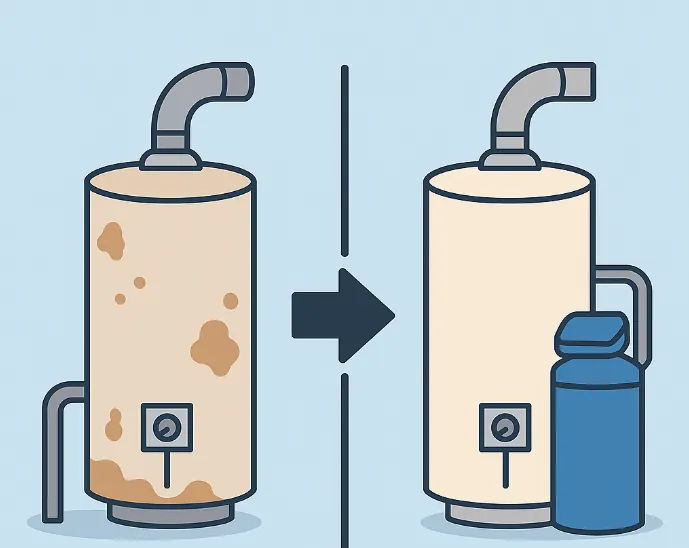
FAQs
Is Burlington water hard?
Yes. Burlington’s water is hard at about 8.6 gpg (147 mg/L).
Do I need a water softener in Burlington?
It’s recommended to reduce scaling and extend the life of plumbing systems.
What plumbing risks are most common in Burlington?
Scale buildup, frozen pipes, sump pump failures, and sewer backups.
How much does a plumber cost in Burlington?
Expect a $300 minimum service call, with most jobs ranging $400–$700.
Who issues plumbing permits in Burlington?
The City of Burlington Building Services Department.
Tips for Burlington Homeowners
- Install a water softener to prevent scaling.
- Flush hot water tanks annually to clear sediment.
- Insulate exposed pipes before winter.
- Test sump pumps before spring storms.
- Confirm permit requirements before starting renovations.
Conclusion
Burlington homeowners face challenges from hard water, aging sewer laterals in older neighbourhoods, and seasonal risks like frozen pipes and flooding. With regular maintenance, proper permits, and timely plumbing upgrades, you can avoid costly emergencies.
👉 Book a licensed plumber in Burlington today at unclogit.com or call 604-496-1661.
